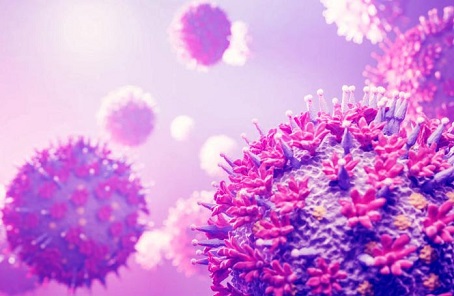Nikhil Prasad Fact checked by:Thailand Medical News Team Jul 20, 2024 9 months, 5 days, 7 hours, 26 minutes ago
Influenza News: The Need for New Flu Treatments
Influenza, commonly known as the flu, is a respiratory illness caused by viruses in the Orthomyxoviridae family. These viruses are categorized into types A, B, C, and D, with types A and B being the most common culprits behind seasonal flu outbreaks. Despite available vaccines and treatments, the flu continues to pose a significant health threat, particularly to vulnerable populations such as the elderly, young children, and those with chronic health conditions.
 New Anti-Influenza Compounds Show Promise in Battling Flu Strains
New Anti-Influenza Compounds Show Promise in Battling Flu Strains
The constant mutation of flu viruses, leading to drug resistance and the emergence of new strains, highlights the urgent need for novel antiviral therapies. This
Influenza News discusses the exciting development of new anti-influenza compounds targeting a critical viral enzyme.
Targeting the Influenza Polymerase Complex
The new study focuses on inhibiting the influenza virus RNA-dependent RNA polymerase (RdRp), a key enzyme in the viral replication process. The RdRp is a complex of three proteins: polymerase acidic protein (PA) and polymerase basic proteins 1 and 2 (PB1 and PB2). This enzyme is crucial for the virus to replicate and spread within the host.
The research team, led by Dr Ilaria Giacchello,Dr Annarita Cianciusi, and Dr Francesca Musumeci from the University of Genoa-Italy, along with collaborators from the University of Padua-Italy and the University of Siena-Italy, aimed to disrupt the interaction between PA and PB1 subunits. By preventing these proteins from assembling correctly, the viral replication process can be halted, effectively stopping the virus in its tracks.
A Breakthrough in Anti-Influenza Compounds
Previous studies by the research group identified a promising scaffold, the 3-cyano-4,6-diphenyl-pyridine core, for developing PA-PB1 interaction inhibitors. Encouraged by these findings, the team synthesized a new library of pyridine and pyrimidine derivatives. These new compounds were designed with specific chemical modifications to enhance their ability to disrupt the PA-PB1 interaction.
One of the standout compounds, labeled 2d, exhibited significant antiviral activity. Compound 2d, which features a pyrimidine core and phenyl and 4-chloro phenyl rings, demonstrated an IC50 value of 90.1 µM in the PA-PB1 interaction assay and an EC50 value of 2.8 µM in the plaque reduction assay, with a favorable cytotoxic profile. This means that compound 2d effectively inhibits the virus at relatively low concentrations without being toxic to human cells.
The Science Behind the Compounds
To understand why these compounds are effective, the researchers conducted molecular modeling studies. These studies showed that the compounds fit well into the binding site of the PA protein, where they interfere with the natural binding of PB1. The modeling also revealed that the compounds form hydrogen bonds with key amino acids within the bindin
g site, enhancing their stability and effectiveness as inhibitors.
Expanding the Compound Library
In their quest to develop even more potent inhibitors, the researchers synthesized additional derivatives, modifying the chemical structure to explore different interactions within the binding site. They decorated the pyridine and pyrimidine cores with various side chains, including thio-N-(m-tolyl)acetamide and amino acid groups.
These modifications yielded several promising compounds. For example, compound 1b, which includes an isoleucine derivative, showed an IC50 value of 36 µM and an EC50 value of 39 µM, with a high safety profile. Another compound, 1e, demonstrated good inhibitory activity and low cytotoxicity, making it a strong candidate for further development.
The Path Forward
The findings from this study represent a significant step forward in the search for new influenza treatments. The identified compounds, particularly those with the pyrimidine core, show great potential in inhibiting the PA-PB1 interaction, a critical target for stopping viral replication. The research team plans to continue refining these compounds, optimizing their chemical structures to improve their effectiveness and safety profiles.
In addition to laboratory testing, the researchers aim to evaluate these compounds in animal models to assess their antiviral activity in vivo. If successful, these compounds could eventually lead to the development of new antiviral drugs that offer a broader spectrum of protection against various flu strains, including drug-resistant and pandemic strains.
Conclusion
The study's findings offer hope for more effective flu treatments in the future. By targeting the PA-PB1 interaction within the influenza polymerase complex, these new compounds provide a novel approach to combating the flu virus.
The study findings were published in the peer-reviewed journal: Pharmaceutics.
https://www.mdpi.com/1999-4923/16/7/954
For the latest
Influenza News, keep on logging to Thailand Medical News.
Read Also:
https://www.thailandmedical.news/news/eucalyptus-extract-shows-promise-against-coronaviruses-and-influenza-viruses
https://www.thailandmedical.news/news/passive-immunization-involving-avian-igy-anti-h5n1-antibodies-show-promise-against-influenza
